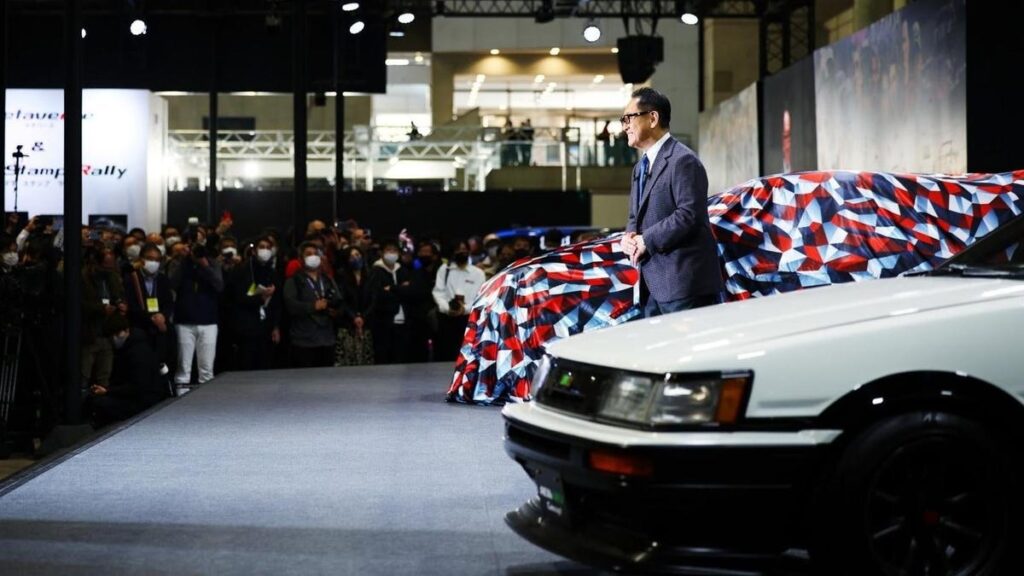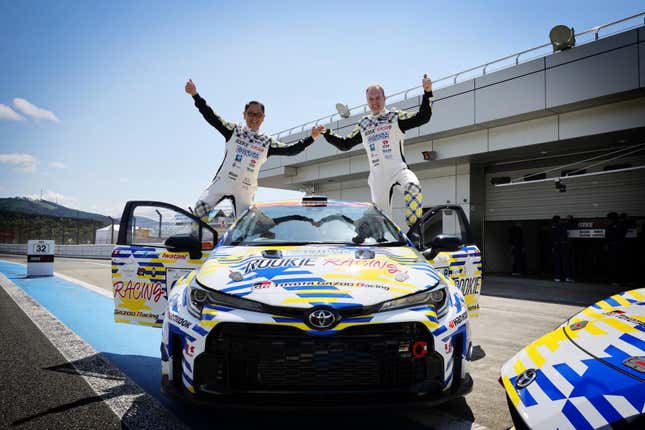For Akio Toyoda, The Business of Making Cars Has Always Been Personal

Akio Toyoda’s departure from the role of president and CEO of the world’s biggest auto maker is relatively recent. We’ll have to wait for history to judge Akio’s 13-year tenure as Toyota’s chief executive, but, by most accounts, Akio’s leadership was exactly what Toyota needed to overcome the challenges it faced in the last decade or so. One such account was featured in Road & Track, and written by former Jalopnik Editor-In-Chief Patrick George.
Nick Offerman On The Freedom Of Getting An Airstream RV
It’s worth a read, but don’t just skim it. Absorb it. Put aside some time to go read this whole profile, because it weaves a thread through Akio’s tenure as CEO, beginning with his “trial by fire” and goes on to explore Akio’s seemingly slow response to EVs.
Photo: Toyota
Still, it’s easy to forget how far Akio brought Toyota, which was undergoing a crisis at the time of his stepping into the role of CEO due to a defect that forced a massive recall. Per Road & Track:
Americans first became acquainted with Akio Toyoda by watching Congress berate him on the nightly news in early 2010, not long after he was named president. There, he was grilled for the months of reports involving Toyota and Lexus cars speeding out of control. A California Highway Patrol officer and his family were killed in one such crash, and the ensuing media frenzy terrified and enraged a country still feeling the hangover from bailing out its own automotive industry. Meanwhile, politicians and regulators accused Toyota of dragging its feet in implementing a recall, all while sales went into a freefall. Toyota had gone from industry disruptor in the 1980s to one of America’s most trusted car brands, and all of that seemed like it was about to evaporate.
From there, the profile explains how Akio — notorious for being an emotional leader — reacted to the issues affecting Toyota in an uncharacteristic way: he took it personally.
He took the criticism around the acceleration crisis especially hard, in private and in public. “He surprised me and many when he testified in those hearings, when he said, ‘Those cars have my name on it,’” Carter said. “‘That’s my family. This is more than business. This was personal to me.’”
Even so, while Toyoda bowed deeply and accepted personal responsibility, he was dead set on making sure something like this never happened again. “Watching Akio at the time, he was operating at a whole different level,” Carter said. “I was shoveling coal, and he had the telescopes out.” That eye on the long game impressed other executives on his team.
The lengthy profile tracks Akio’s growth as a leader by becoming a race car driver, and someone who judged his company’s products as an enthusiast, first and foremost. That, too, is rare for a CEO of a company as big as Toyota, and certainly rare for the CEO of an automaker. But we don’t have to take one person’s word for it because the profile also has insight from lots of people around Akio, as well as Toyoda himself, who wonders about his legacy, saying:
“When I look back on those 13 years, I think from my perspective, I spent a lot of time taking care of the past,” Toyoda told me and a small group of international reporters at Le Mans that weekend. “If I had been given the opportunity to start from now…I would like to take the time to tackle problems for the future.”
Most of all, Akio dared to decree cars should be fun, then actually made sure his company could follow through. Go read the exhaustive profile. It’s great.

Photo: Toyota



